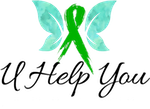What Is Domestic Violence?
Domestic violence is abuse that happens in a personal relationship. It can happen between past or current partners, spouses, or boyfriends and girlfriends. This type of violence affects men and women of any ethnic group, race, or religion; gay or straight; rich or poor; teen, adult, or elderly. The abuser may use fear, bullying, and threats to gain power and control over another individual. He/she may act jealous, controlling, and/or possessive.
In the beginning of a relationship these signs may be difficult to notice, but after the relationship becomes more serious, the abuse may get worse. For example, physical abuse can begin with a slap and over time progress to kicking, punching, pushing, choking, etc. In some cases, the abuser may begin making threats, calling the other person names, and slamming doors and/or breaking dishes. This is a form of emotional abuse that is sometimes used to make the person feel bad or less than. The violet threats are a control method used by the abuser. In some cases threats are made against a person’s pet, family, children, etc. Abusers also use financial abuse as a method of control. This is usually seen by the withholding of money, making their spouse feel dependent and/or without resources. Domestic violence can also include sexual abuse, such as forcing a person to have sex against his/her will. This act of violence is now recognized as spousal rape.
Cycle of Violence
Adapted from Lenore Walker)
Consists of Three basic phases:
Honeymoon Phase – Identified by affection, an apology, and violence ends temporarily. During this stage the abuser may feel remorseful. Some abusers may walk away from the situation and some may shower their victims with gifts, love, and affection.
Tension Building Phase – This phase is identified as poor communication, tension, and/or fear. During this stage the victims typically tries to calm the abuser down to avoid any major violent confrontations essentially walking on eggshells to avoid any outbursts.
Acting out Phase – Identified as outbursts of violence and/or abusive incidents. During this stage the abuser attempts to dominate his/her partner (the victim), with the use of domestic violence.
Getting Help
What should you do if you’re being abused? Get help!!
• Get in touch with a local domestic violence group for information and support. They can help you find out about legal and social services in your area. It is imperative to find the program nearest you that offers shelter and legal support.
• Call the National Domestic Violence Hotline at 1-800-799-SAFE (1-800-799-7233) or visit their site at http://www.thehotline.org/help/
• Talk to the police.
• If you are a teen, talk to a trusted adult, such as your parents, family friend, or school counselor.
• Make sure that you have access to phone numbers you can call and places you can go in an emergency. If you do not feel safe keeping this info on your person, try to memorize the emergency phone numbers and places.
• Please, teach your children not to get in the middle of a fight. This puts the children further into harm’s way.
• If you think you may leave, make a plan to help keep you safe. This will help when you are getting ready to leave.
• Your plan might include:
Putting together and hiding a suitcase of clothing, copies of your car and house keys, cash money or credit cards, important papers; such as Social Security cards and birth certificates for you and your children, etc. Opening a savings account or getting a credit card if you can do so in secret. Leaving an abusive partner can be just a dangerous as staying, so please use caution and safety, and get help from your trusted family, friends, doctor, counselor, local police, legal department, etc.
Domestic violence is a serious matter that can result in death. If you or someone you know are being abused please seek help and safety as soon as possible!
Disclaimer: The advice provided should not be considered psychotherapy or professional medical advice. It is important that the blog’s readers seek the kind of professional advice and insight that you can only receive from one-on-one interaction with a qualified therapist or counselor. Always seek the advice of a licensed mental health practitioner without delay with questions you may have regarding any mental health symptom or medical condition. Please never disregard professional advice because of something you have read on “U Help You” blog.


